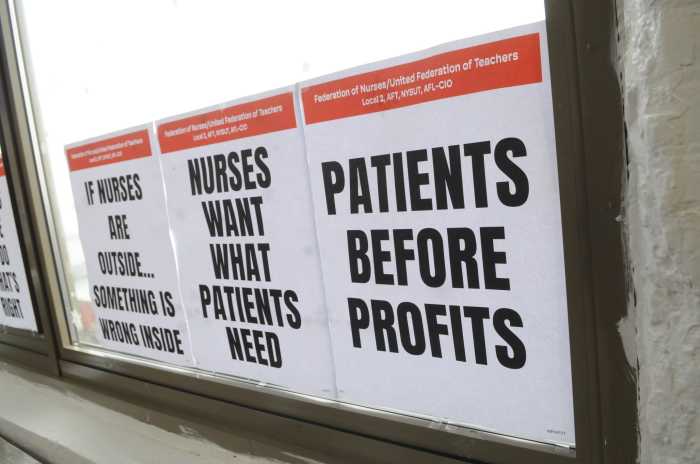Another bidder is lining up for a shot at taking over Long Island College Hospital — and this one apparently has friends in high places.
The development firm MedDev lists among its clients the State University of New York, which is selling off the beleaguered Cobble Hill medical center, and is now planning to throw its hat in the ring to overhaul the hospital, according to the firm’s founding partner.
“We’re New Yorkers through and through, we believe in the project, and we think we could bring good value to the table,” MedDev head Frank Paterno said. “We know health as best as anybody.”
MedDev specializes in the “design, finance, and build” of facilities for its clients by developing assets such as ambulatory care, assisted living, and medical offices, and providing such health facilities with access to cash from “non-traditional sources,” according to the company’s website.
Paterno declined to comment on the specifics of the plan.
Reps from MedDev and Memorial Sloan-Kettering, another listed client, attended a mandatory meeting this week for potential hospital bidders, who must submit their proposals by March 19. A spokesman for Memorial Sloan-Kettering also declined to comment on whether the Manhattan cancer center has a proposal in the works.
The latest round of bidding follows a February court settlement between activists and the state that ended a legal battle over the state’s efforts to sell off the valuable real estate that the 155-year-old hospital sits on. The new process favors proposals with bigger medical components, but all but one of the five pitches previously in the running called for closing the hospital and replacing it with housing and some healthcare offices.
Hospital advocates hope that one of the new suitors will offer to keep Long Island College Hospital full-service.
“I’m more optimistic than I was with the old request for proposals, but there are no guarantees,” Cobble Hill Association president Roy Sloane said. “So far, there has been an encouraging response.”
Under the new bidding process, plans will be evaluated based on a point system that weighs medical services as two-thirds of the score and assesses the rest in terms of financial commitments. State reps will determine a majority of the score, but are not supposed to consult each other in the process, according to the terms of the settlement. A committee made up of Councilman Carlos Menchaca (D—Red Hook) and representatives of the nurses unions and community groups that sued the state will have less than half the say in scoring the medical category and none in scoring the financials.

























